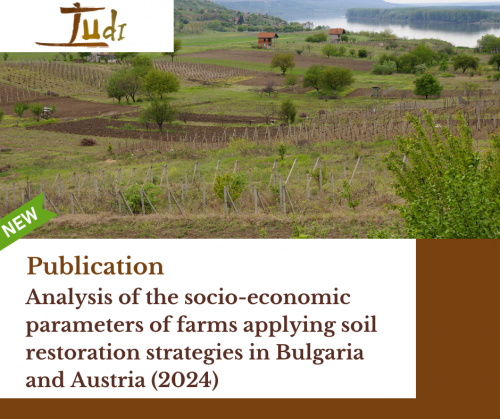TUdi Article: Analysis of the socio-economic parameters of farms applying soil restoration strategies in Bulgaria and Austria
The new TUdi article “Analysis of the socio-economic parameters of farms applying soil restoration strategies in Bulgaria and Austria”, written by Dimitre Nikolov, Ivan Boevsky, Martin Banov, Ekatherina Tzvetanova, Krasimir Kostenarov, Gunther Carl Liebhard and Peter Strauss, evaluates how socio-economic factors of farms implementing soil restoration strategies influence supply chain cooperation, public-private partnerships, and landscape alliances in Austria and Bulgaria.
The assessment aims to highlight new socio-economic opportunities, which can be a target for public policies. The study is based on the pilot farm analysis of TUdi. Made with an Analytical Hierarchical Process (AHP), the analysis of the socio-economic parameters shows that different fertilisation strategies have an impact on supply chain cooperation. The goal is to engage all suppliers while highlighting that key socio-economic factors include certainty of demand, access to financial resources, and the uncertainty of income.
Regarding fertilisation and remediation strategies (methods used to correct or mitigate environmental damage), the analysis shows that the most important socio-economic opportunities are related to certainty of demand and access to finance. In other words, having a reliable demand for agricultural products and the ability to secure financial resources are key for effectively implementing fertilisation and remediation efforts.
Additionally, implementing a remediation strategy requires greater agreement within the local community and more activities, which explains why this criterion is often part of the goals of public-private partnerships and landscape alliances. In this case, the most important socio-economic opportunities are certainty of demand, access to finance, political support, and training and equipment.
